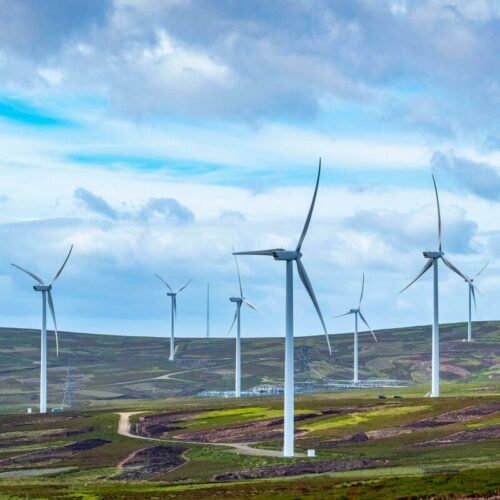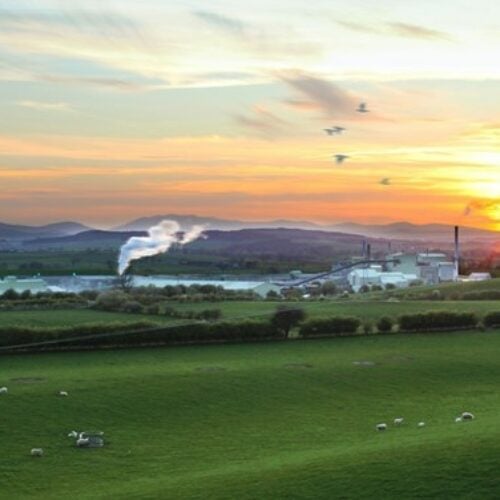A regulatory overhaul, a level playing field for low carbon technologies and more ambition in decarbonised heat are among the key asks from Energy UK as it seeks to set a path for energy suppliers to deliver a low carbon revolution.
The trade body’s ‘Future of Energy’ report, published yesterday, looks to establish a route forward for the sector to deliver on a transition which is forcing energy’s scope “wider and more interrelated than ever before”.
The report itself is wide-ranging, spanning various industries and sub-sectors in a bid to reflect that increasing scope, but ultimately narrows in on a number of key recommendations to the industry and its regulators in order to deliver on the potential benefits of the low carbon transition.
Among the report’s key recommendations are;
- An end to existing ‘one size fits all’ regulation relating to energy retail suppliers, allowing them to offer more tailored services;
- Specific requirements and targets for energy efficiency and low carbon heating in homes, backed by incentives and supports;
- Back local partnerships to deliver low carbon heating projects for communities and businesses;
- Establish a national ‘core network’ of ultra-rapid EV chargers while simultaneously making smart charging compulsory;
- Establish a level playing field for low carbon technologies, ensuring they all have the same opportunity and route to market in order to bolster investor confidence, and;
- Provide flexibility technologies with opportunities to provide cheaper alternatives to network reinforcements.
While some of those recommendations have already been met – government has already mandated that all EV chargers installed be ‘smart’ and the country’s DNOs penned a flexibility commitment late last year – calls for a regulatory overhaul of the supply market and much greater ambition in heat will not go unnoticed.
Lawrence Slade, chief executive at Energy UK, said the ongoing transformation of the energy sector would present both huge opportunities and challenges, but stressed the need for urgent action on climate change commitments, pointing particularly at recent protest movements.
“As a sector we’ve led the way so far by halving emissions in the last ten years with the growth of renewables meaning that the majority of our electricity generation now comes from low carbon sources – and at an ever-falling cost to customers.
“But this progress will be wasted unless we press ahead, not just by continuing to decarbonise our sources of power, but crucially by doing the same in other sectors like heating and transport and getting serious about making our homes and businesses energy efficient.
“Setting clear targets and expectations in these areas will give the signal for the industry, in partnership with others, to bring the same innovation and investment that has already delivered results when moving to cleaner sources of power,” he said.
Data and technology coupling
The report itself is structured with a summary and five other, more detailed sections which examine the future retail market, how to fund new electricity generation and systems, reducing emissions from buildings, low carbon road transport, and the future of both transmission and distribution networks.
One pivotal consideration in the summary report is the emergence of new technologies and data capabilities, and their ability to drive the development of new services. It cites the advent of energy suppliers being able to inform and educate consumers as to how much individual household appliances cost to run, and poses a future where that level of data could help customers make decisions as to when, and where, to charge their electric vehicle.
It argues that the energy sector’s transformation is now “coupled with a data and technological revolution”, one that will ultimately deliver benefits for UK consumers and businesses.
But when it comes to the future retail market and consumer relationships with it, Energy UK has zeroed in on seven particular opportunities and the potential solutions required to harness them. Three of those – the need to reform regulation, reduce regulatory uncertainty and overhaul current industry codes – all result in an uptick of innovation, while the final opportunity highlighted heralds the “untapped resource of data” that currently exists within the supply market and its potential use.
The report’s foreword has been authored by Citizens Advice chief executive Gillian Guy, who said that while the following years would bring an “even greater revolution” in energy than has already been witnessed, there will be ongoing challenges.
“Furthermore, it’s clear that some people will need more support to access a good range of products in a future market. Not only must the transition be fair, but it must also be clearly seen to be so.
“Citizens Advice welcomes the focus on the consumer and many of the recommendations behind Energy UK’s Future of Energy vision. This report sets out clearly the challenges this sector faces and a vision of a future market and we look forward to working with Energy UK and its members to realise the reality of a truly consumer-focused energy future,” she said.





